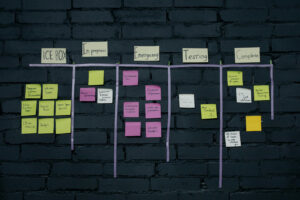Technology is moving faster than people can seem to keep up with. The workplace is changing and AI is no longer an idea from the future, it is here, shaping industries and redefining how work gets done.
A lot of people still wonder if AI would take their job in the near future. While that may not be easy to predict with a high degree of certainty, one thing is sure, AI is changing how work gets done and if you don’t learn how to use it, someone else will and they’ll get ahead while you struggle to keep up and continue to complain about how unfair your boss is, not promoting you after you’ve worked hard for 8 years with them.
But have you really worked hard? Or have you just done the same repetitive, easily automated, low impact tasks over and over until you became so good at it that everyone left it for you and moved on to other high impact tasks that translates to measurable growths for the business? In case you didn’t know, that’s what gets rewarded. Not necessarily how long you’ve been at the company.
Let’s look at what’s currently happening across industries:
Marketing teams now make use of AI to analyze consumer behavior, predict trends, and personalize content at scale. Instead of spending hours gathering and sorting through data manually, they can now launch targeted campaigns with laser precision and event based triggers.
Writers who once spent hours doing research can now generate structured insights within seconds leaving those refusing to leverage AI for either research or editing to work twice as hard for the same results.
People in finance use AI to detect fraud, forecast market trends, and automate complex reports. A financial analyst who understands how to interpret AI-driven insights is more likely to make smarter investment decisions and stay ahead of their counterpart who doesn’t.
Healthcare professionals now use AI to scan medical images, predict disease patterns, and assist in diagnosing conditions with greater accuracy. Instead of relying solely on human intuition, doctors have an AI-powered second opinion to help them catch issues earlier and improve patient outcomes.
Lawyers are cutting research time in half by using AI to sift through case law. Instead of spending days buried in legal texts, they can now get precise case references in seconds. AI won’t argue in court (yet), but it sure makes finding the right legal precedent easier.
Customer service professionals now use AI chatbots to handle FAQs, freeing them up to focus on complex, high-impact cases. Human agents are still essential, but now they’re armed with the right tools to work more efficiently. The result? Faster responses, happier customers, and way fewer “Can I speak to a manager?” moments.

All of these doesn’t mean that AI is taking over. It simply means that the way we work is changing, after all, the only constant thing in life is change. Your value isn’t in doing repetitive tasks, it’s in knowing how to work with AI to be faster, smarter, and more efficient. When AI started to gain popularity, many thought it was reserved for tech experts. But that’s far from the truth. Free platforms like ChatGPT, Gemini, Perplexity AI, Claude, and now DeepSeek are available to anyone willing to explore them.1
When AI started to gain popularity, many thought it was reserved for tech experts. But that’s far from the truth. Free platforms like ChatGPT, Gemini, Perplexity, Claude, and now DeepSeek are available to anyone willing to explore them.
These days, being good at your job is no longer enough. Companies now need people who can integrate AI into workflows and improve efficiency. A McKinsey report predicts that by 2030, at least 70% of companies will have adopted AI in some form (I expect it to happen even sooner). The demand for AI skills is hitting record high and not knowing how to use it isn’t just an inconvenience, it’s becoming a liability to everyone you work with.
The biggest mistake you can make is assuming that this doesn’t affect you. AI isn’t coming for your job, but someone who understands it better than you do will outperform you, get promoted faster, and secure better opportunities.
the biggest mistake you can make is assuming that this doesn’t affect you. AI isn’t coming for your, but someone who understands it better than you do will outperform you, get promoted faster, or secure better opportunities
Industries, as all things do, evolve. When computers became mainstream, those who resisted learning them fell behind. The same happened when the internet began to revolutionize business – companies that ignored it became irrelevant.
AI is the next big shift, and the choice is simple, adapt or get left behind!
- IMPORTANT NOTE:
While AI is a powerful tool, it’s not perfect. AI models sometimes make mistakes, so always verify important information before relying on it. Additionally, ensure that your use of AI tools aligns with your organization’s data protection and privacy regulations. Before installing any third-party AI tool or using any AI platform, check with your IT team to avoid security risks. Safety starts with you.1 ↩︎





